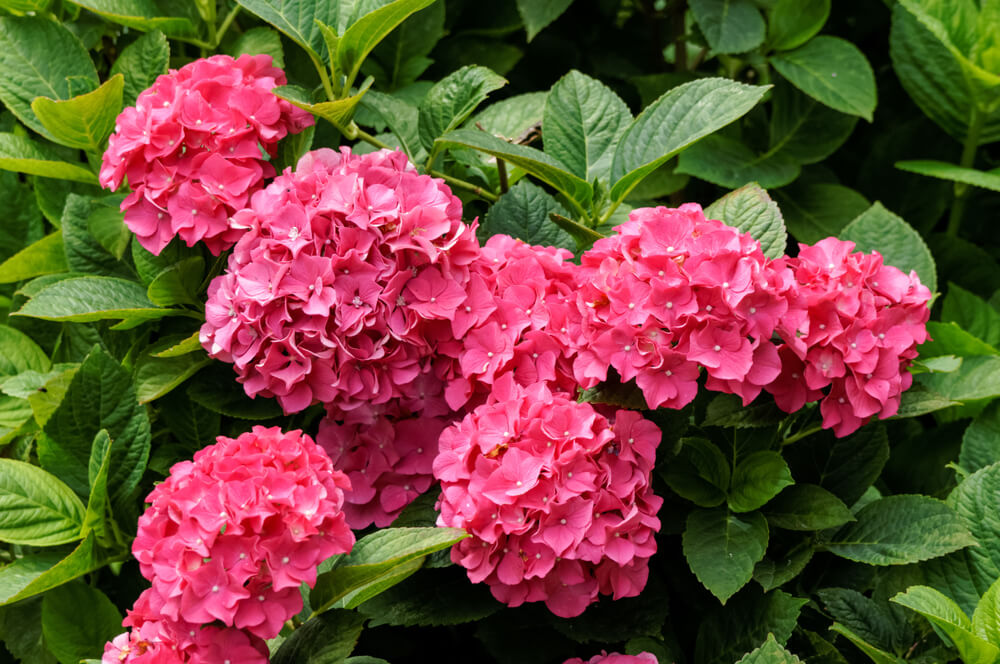Hydrangea macrophylla Leuchtfeuer 300mm pot size SHRUB DECIDUOUS
Hydrangea is a genus of deciduous and evergreen shrubs that are native to Asia and the Americas. They are known for their large, showy flower heads that come in a variety of colours and shapes. Here are some horticultural notes on the genus Hydrangea, including popular cultivars:
Climate requirements: Hydrangea plants grow best in areas with mild to cool temperatures, and are suitable for planting in partially shaded areas. They can tolerate some sun, but too much can cause stress and damage.
Watering: Hydrangea plants require regular watering, and the soil should be kept evenly moist. They can tolerate some drought, but too much can cause stress and damage.
Soil: Hydrangea plants prefer well-drained soils that are slightly acidic to neutral in pH. They can grow in sandy, loamy, or clay soils, as long as they are well-drained.
Fertilizer: Hydrangea plants benefit from a regular feeding of a balanced fertilizer throughout the growing season to promote growth and flowering.
Pruning: Hydrangea plants should be pruned lightly in early spring to promote bushy growth and remove any dead or damaged branches.
Propagation: Hydrangea plants can be propagated from softwood cuttings taken in spring or early summer. Dip the cut end in rooting hormone and plant in a well-drained potting mix.
Pests and diseases: Hydrangea plants can be affected by aphids, spider mites, and mealybugs. They can also be susceptible to fungal diseases such as powdery mildew and leaf spot. Treat with appropriate pesticides or fungicides as necessary.
Cultivars: There are many cultivars of Hydrangea available, offering a range of flower colours and growth habits. Some popular cultivars include:
Hydrangea macrophylla ‘Endless Summer’: A shrub with large, pink or blue flowers that bloom in summer. It has a rounded growth habit and is often used in mixed borders and as a specimen plant.
Hydrangea quercifolia ‘Snow Queen’: A shrub with large, white flowers and deeply lobed leaves that turn red in fall. It has a rounded growth habit and is often used in mixed borders and as a specimen plant.
These cultivars are often used in landscaping, as they provide a variety of flower colours and growth habits. They are also popular in containers and as a low-maintenance plant.
Description
Deciduous shrub producing masses to two toned flowers in Summer. Growing approx 1.2m high x 1m wide.
Characteristics
- Foliage Colours: Green
- Flower Colours: Pink and white
- Flower Fragrant: No
- Flowering Season: Summer
- Landscape Uses: Informal screen, cottage garden
- Pest & Diseases: Blight, leaf spot, powdery mildew
- Plant Care: Best suited to morning sun and afternoon shade. The spent flowers from last season need to come off. It’s a good indication of where to prune. Look for those spent flowers and you go down the cane or stem until you see nice, healthy, powerful buds. What you do is, just prune them back just above the node. Annual slow release fertiliser.
- Growth Rate: Fast
- Maintenance Level: Moderate
- Water Usage: High
Tolerances
- Drought: Low
- Frost: High
- Wind: Low


